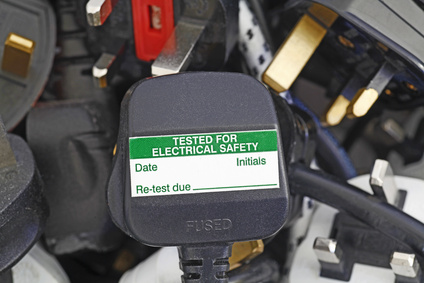Electrical Safety for Landlords: Recent Regulatory Changes
Published on May 8, 2017 by Sarah Mac

With so many deaths and injuries arising from electrical related incidents across the UK, it is no wonder there is a raft of legislation for landlords to follow concerning electrical safety. Here we look at existing and newly introduced regulations that apply to landlords.
The Office for National Statistics has stated that 22 people died in 2010 as a result of electrocution or fatal electric burns. In the same year there were over 20,000 accidental fires in homes leading to 48 deaths and 3,324 injuries.
These shocking statistics have led to strict legislation having been put in place concerning electrical safety. Where landlords are concerned, all electrical equipment supplied must carry a safety kitemark, for example the CE logo, to demonstrate that the products fall in line with current European standards. Landlords are also bound by rules that only allow them to use a registered electrician to carry out any installation, maintenance or repair work.
Also, under the Landlord and Tenant Act, landlords must respond to any requests for repairs. Where a property is found to be unsafe, a claim can be brought under the Consumer Protection Act. Landlords also have a duty of care towards tenants and any guests that visit their property.
The Electrical Equipment (Safety) Regulations 2016
In addition, the Electrical Equipment (Safety) Regulations 2016 came into force in December 2016. These apply to electrical equipment first placed on the market after 8 December 2016. Any equipment introduced to the market before this date will continue to fall under the Electrical Equipment (Safety) Regulations 1994.
This fairly new introduction may cause some confusion for landlords. Whilst the key date rests with when the equipment was first marketed, it’s probably more straightforward to just consider when the item was purchased. If this was after 8 December 2016, then the new regulations will apply. If it was before this date, then go with the 1994 regulations. Duties are similar, but do vary a bit and they arise when a landlord or agent (regarded as a ‘distributor’ for the purposes of the Regulations) makes a piece of electrical equipment available on the market, i.e. at the start of each new tenancy.
The Regulations apply to all electrical appliances including televisions, home entertainment systems, vacuum cleaners, white goods, lamps, kettles, toasters, etc. with a voltage rating between 50 and 1,000 Volts for mains electricity and between 75 and 1,500 Volts for battery powered items. The Regulations DO NOT apply to electricity meters and domestic plugs and socket outlets and various other items that are not relevant to landlords.
Under the Regulations, landlords have a duty to adhere to various provisions. The following are the most relevant:
- Act with due care to ensure that electrical equipment conforms with the obligations of the manufacturer, i.e. applying due diligence to ensure the item has come from a trusted and compliant source that has applied the appropriate safety objectives in the manufacturing process.
- Ensure all electrical equipment bears the CE marking; is accompanied by the required documents and comes with instructions and safety information in a language that can be easily understood by consumers. This language must be English for all equipment made available in the UK.
- Make sure that the manufacturer has complied with the labelling requirements of the Regulations.
- Remove or not make available any electrical equipment that does not conform and then either take steps to bring it into conformity; withdraw it or recall it.
- Inform the relevant manufacturer or importer and the market surveillance authority of any risk posed by a piece of electrical equipment.
Further Reading
A useful resource for landlords is this Landlords’ Guide to Electrical Safety published by the Electrical Safety Council, although you will need to consider the provisions of the latest legislation outlined above in conjunction with it.

